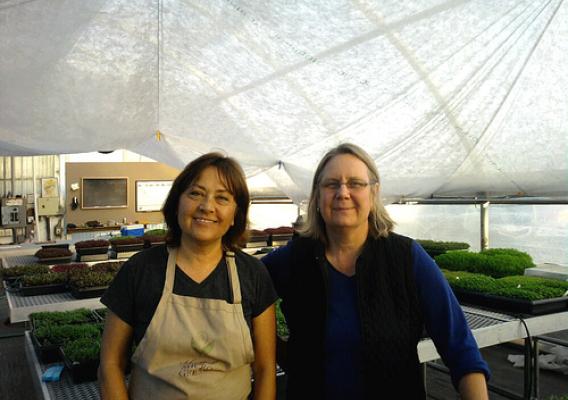When Kathy Patterson and Stacey Schuett decided to write President Obama a letter, it wasn’t about the economy or climate change. They didn’t give their views on gun control and they didn’t express their feelings about the gridlock in Congress.
They simply said thank you.
“We are writing to express our heartfelt appreciation for the microloan program that was put into place in January,” the letter stated. “While $35,000 is tiny compared to other programs, for a two-family farm like ours, it is a game changer.”
Kathy and Stacey, owners of Sebastopol Microgreens, were the first in Northern California to receive the new microloans developed by the U.S. Department of Agriculture’s Farm Service Agency (FSA) to help beginning, small and niche farmers. The loans ease certain requirements, streamline the application process and provide a faster turnaround time for approvals, when compared to regular operating loans.
“This program is like having a partner give you a boost when you need it most,” said Kathy.








